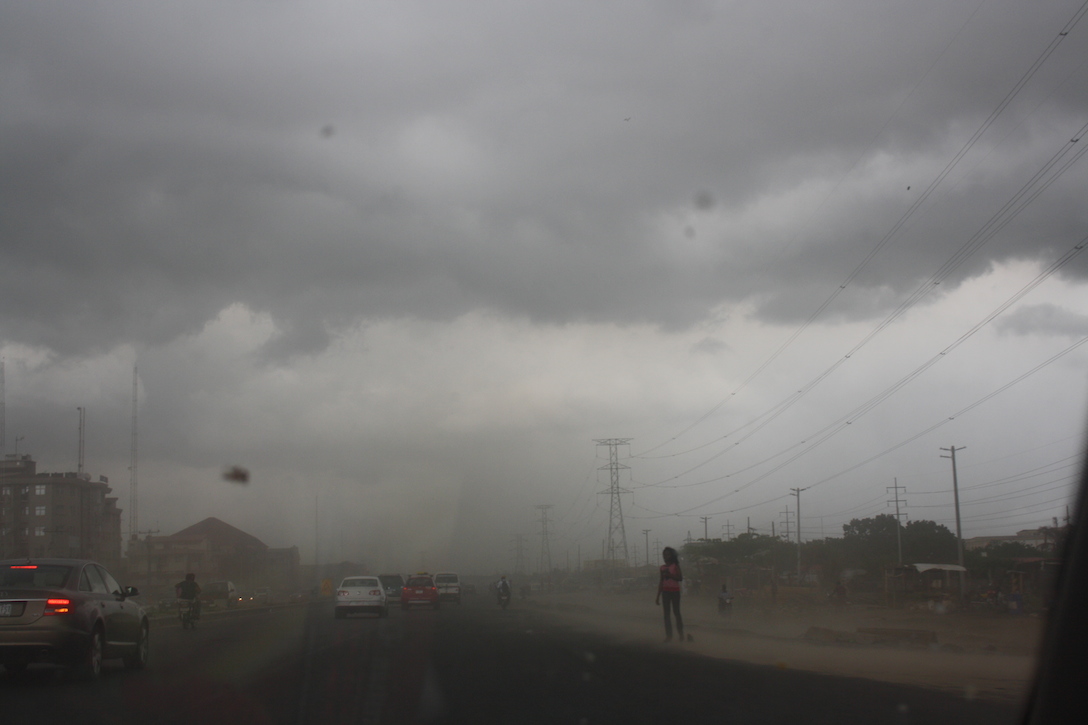
By Bamidele Oni
The early morning rains have begun!
It’s the inception of the never ending raining days that define the usually wet months of June, July and a little part of August before the usual dry spell the breaks the many wet days in this part of the world (Southwest of Nigeria).
A typical season well attributed to increased agricultural activities and which is quite the usual in the rural areas where the predominant occupation is farming, although with a setback of little availability of mechanized system which has greatly limited the optimality in expected output considering the percentage of individuals involved and the availability of raw resources of engagement.
The usual expectation of increased food production as envisaged with the rains have in recent times taken a reverse in the known order as the pattern of rainfall has assumed a rather form of irregularity and which has largely induced a level of unpredictability.
The uneducated and rural folks who have relied on old and age-long practices and to some extent have developed a defaulted knowledge of the rainfall pattern have become all concerned with the erratic abnormality that seem to confound their reasoning and often they conclude that the earth is ageing faster and losing its naturality.
The usual planting season is no longer definitive as the seasonal changes have become a lot unpredictable and to an extent leading to a premise of gradual extremity in the regards of excessiveness and unavailability. This extremeness is often seen in the form of coastal flooding and unannounced droughts in the more arid regions.
At the inception of the perceived planting season, there is always the concern of waiting through for the rains to stabilize such that the factor of the possibility of rain ceasing abruptly is eliminated in the view that events of crop failure is reduced and a level of assurance is established at least in the sense of the croplands receiving average volume of rainfall essential and normal for crop survival.
While erratic rainfall pattern might not be a problem in some parts of the world, the situation that obtains here in a lot of ways limits the popularity of alternatives in irrigation systems that would have sufficed for the periodic short termed drought enabled by the changing climate.
While the primary problems associated with the changing climate are gradually taking their toll on the society, some distinctive attached scenarios are becoming visible in a perfect description as secondary problems. The instance of the constant conflicting of cattle herdsmen migrating from the far north in the search of grazing lands and the farm owners in the south is fast becoming a societal unrest.
The changes in extent and volume of most surface water bodies that are significantly strategic in their functions and location has also in recent times compounded the problem of security, like the instance of the shrinking lake chad which has been causing local strife around the communities sharing and depending on the water source for the livelihood support, domestic needs. In a way, a look out for possible international conflicting as the lake shares borders with Nigeria and Chad republic.
Now that the rains have stated, it is of course another time to get concerned of the possibilities of having unusually large volume of downpour which would often lead to flooding and which also subsequently in turn leads to potential loss of lives, properties, and cropped lands etc. Perhaps in the absence of essential proactive plans and preparedness by the government which has overtime been the case except for the fire brigade interventions during emergency situations, every individual might as well prepare in their respective capacities for the days ahead.
All of these vividly spell in detail the definition of climate change in the context of the society under study and an envisioning towards paving a way forward to creating an agreeable form of adaptation alternatives that would fit in the context of bringing a check to the effect of the changes in the societies while also educating and making room for development of locally identified strategies that would help adjust and improve on the current level of assumed knowledge on adapting to the changing climate.
Oni, Executive Director of Green Impact International, writes from Abeokuta, Nigeria










